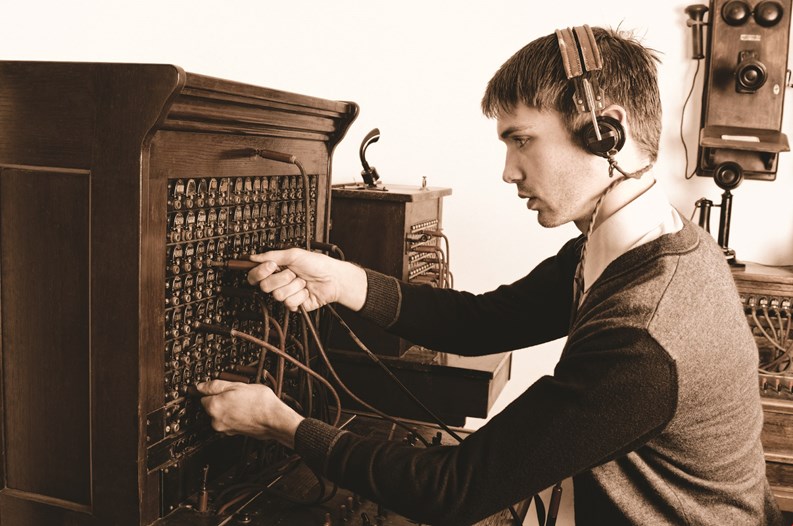Your co-op, condo or HOA building may be your home, but to many others, it's a workplace. Whether they’re managing a small, tight-knit walk-up building in Jersey City or a sprawling condo development in Fort Lee, property managers handle a wide array of tasks from the physical to the administrative.
While many of these jobs can be described in concrete terms, (send out monthly bills, attend meetings, file paperwork) one important component of the work is less easy to pin down: The actual management of people; specifically building staff members. A manager might just have to coordinate operations with a single superintendent, or work with any number of doormen, porters, custodians, and amenity-related staff (such as fitness center attendants, for example), depending on the size and nature of the community. Even a great manager may not be an expert in human resources management but it’s an incredibly important piece of their job, and if done well, the entire community will run more smoothly.
Human Capital
When property managers can maintain and improve their staff management skills, then their job and their staff’s jobs will become easier and more harmonious.
“The vast majority of our building staff are dedicated, very hard working and intelligent,” says Peter von Simson, the chief executive officer of a New York City-based management firm. “However, like all people, some have personal problems, financial issues, substance abuse—we have seen it all.” So, like all good managers, this needs to be dealt with in a sensitive, timely manner so that a building can run smoothly.
The first thing that a building or association manager should understand is that human resources administration in the context of multifamily property management is similar to human resources in other corporate environments, but it does have its differences.
“Human resources is a department within a corporation that handles employees, concerns, insurance and benefits,” says Martin H. Laderman, CPM and president of mem property management corporation with offices in Jersey City, Somerset and Galloway. “The term 'human resources' is not synonymous with property management—it’s synonymous with corporations or a business that has 30 or 40 employees. The problem with management companies who have human resource departments is that the managers, the president, the vice president are not in touch with their employees, because that’s delegated to human resources—so they are separating themselves from the employee’s complaints or questions.”
“In property management, there’s an internal way of looking at human resources and an external way,” says Joseph Balzamo, president of Alliance Property Management in Morristown. “For a small firm, a human resources director wears many hats,” agrees Brian Weaver, vice president of Wilkin Management Group in Mahwah. “For a larger firm, it’s a full-time job. A lot depends on the quality of the director. Human resources will take care of things like payroll or internal conflicts. It depends on the size and the culture of the company.”
However, on the other hand, there is one major difference that sets building communities apart from companies when it comes to human resources—and this difference adds a layer of complexity in managing building employees: They’re not technically employed by the managing agent or company, says John Piastra, vice president of Associa, a large association management firm with offices nationwide. In New Jersey, Associa Mid-Atlantic, has locations in Mount Laurel and Saddle Brook.
“They’re employed by the board,” Piastra says. So while the building staff—such as the superintendent, the doormen and all the maintenance workers—do work at the behest of the management company, it’s the board who chooses them, and it’s the board that has the ultimate choice in retaining—or firing—them. But that’s not all. Many building staff workers in the Garden State are unionized (the majority affiliated with the New Jersey district of SEIU-32BJ, the Service Employees International Union), and their contracts are negotiated by the hiring board and the union. If your staff members are unionized, “You’re subject to the terms of the bulk contract,” says Piastra.
As a manager, you are a proxy for the staff members’ employer—the board—and thus you cannot make your own rules or decisions, you must carry out the wishes of the board, and follow all regulatory and labor guidelines as well.
While formal licensing is not a requirement, New Jersey’s community association managers receive professional development and staff management training in a number of ways. For education, networking within the property management arena, and leadership training, the New Jersey edition of The Cooperator—as well as the annual Cooperator Expo trade show—are terrific places to start. A complete, searchable archive of Cooperator articles can be accessed at njcooperator.com, and more information on the Expo can be found at nj-expo.com. Industry experts also recommend the New Jersey chapter of Community Associations Institute (CAI), found at www.cainj.org, the Pennsylvania-Delaware Valley chapter at www.cai-padelval.org, and the Institute of Real Estate Management (IREM), which has two local chapters in Riverton: IREM Chapter 1 (www.irem1.org) and IREM’s Southern New Jersey Chapter 101 (www.irem101.org). The next Cooperator Expo will take place Wednesday, May 11, 2016 from 10 a.m. to 4:30 p.m. at the Meadowlands Expo Center in Secaucus.
Day-to-Day Administration
Lisa Northup serves as senior vice president of human resources for Associa, and has worked in the HR field for 15 years. She says that it's important to remember that on both the board and management side of the administrative equation, what works for one property probably will not work for all. In order to be successful, managers and boards alike have to learn to adapt and to be flexible to meet diverse needs.
According to Simson, another common mistake made by inexperienced managers is letting administrative tasks like payroll, tracking overtime, and so forth get back-burnered in favor of more exciting aspects of the job. It may not be the most thrilling part of running a building or HOA, but it’s very important for all management personnel to maintain detailed time sheets for all staff members, and for them to diligently track things like overtime requests, vacation allotments, sick days, and other absences.
Board-approved, written job descriptions for each position also ensure that expectations for the positions are aligned. “Managers make a mistake when they do not communicate effectively with the resident superintendent, and when they let unfounded staff grievances gain traction out of concern about union involvement,” Simson says. In his experience, the shop stewards of SEIU-32BJ and other unions will work with managers to correct staff performance when these are properly documented and discussed.
This is key, Simson says. “I think managers also make a mistake when they rely on board members to intervene to directly discipline the staff for whatever reason,” he says. “Once the staff sees that a manager prefers to stay on the sidelines and defer to the board, they will no longer be manageable by the agent.”
Sometimes however, it’s a little trickier, Piastra says. In a building or development, there’s typically a super, or perhaps a resident/on-site manager. In some communities, the superintendent may oversee the staff on a daily and/or nightly basis. In other buildings, that function will fall to the manager.
Either way, “Establish hierarchy on a per-building basis, and from there, establish the terms of the contract in terms of discipline and job descriptions,” Piastra says. Often if the personnel are unionized, the terms of the contract will dictate the duties that the positions can have, and they explain what can and can’t be done within those positions.
The board is the final arbiter when it comes to any issues, though they may (and should) look to the management as the advisor, Piastra says. Management is also responsible for motivating their staff, though each staff member will be motivated by different incentives.
A Matter of Motivation
It’s essential that a motivated manager helps get an apathetic, otherwise dysfunctional building staff back on track but first they need to figure out the issue, Piastra says.
“Does the super need motivation? Sometimes, it’s a question of saying, ‘Let’s do this, this and this, and if it works, maybe there’s an incentive in it for you,’” Piastra says. “Determine where it’s coming from, what’s the problem. If the staff isn’t happy, it boils over to the residents. There’s no easy answer, but the easy thing is to figure out what or who is creating a problem.”
Sometimes, however, there simply may be no happy solution. When it comes to handling hiring, firing, or the scheduling, performance reviews or other day-to-day human resources work within the role of the manager—everything that’s not learned on the job can be taught via online or in-person courses, Piastra says.
“It’s very important to know and understand what your local government, state and federal rules are, and to understand your union contract,” Piastra says. “The courses also deal with overtime and what you can and can’t do as far as absenteeism.”
Anyone involved in managing a multifamily association knows it's a complex job―there's structural maintenance, paperwork, and all kinds of administrative tasks to stay on top of. Human resources and staff management are just as crucial to the smooth day-to-day operation of a co-op, condo or HOA as handling finances and legal issues. By keeping respect, communication, and clear expectations front-and-center, managers and boards alike can position themselves and their staff for success.
Danielle Braff is a freelance writer and a frequent contributor to The New Jersey Cooperator.







Leave a Comment